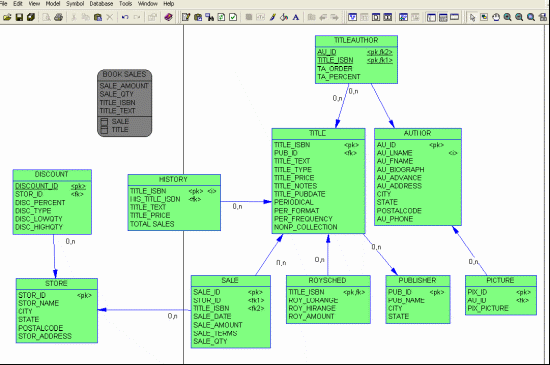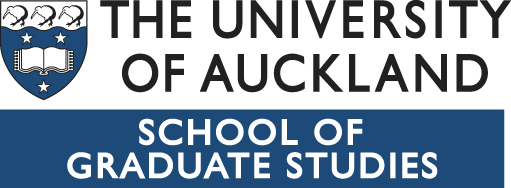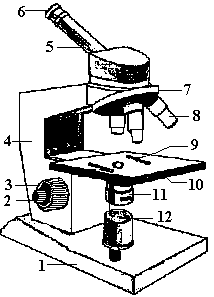A CHARTER FOR FAMILIES OF YOUNG CHILDREN WITH VISION
2 CANADIAN CHARTER OF RIGHTS AND FREEDOMS OVERVIEW (PEARSON2008 GLOBAL SUMMIT WAQ PROJECT CHARTER (FORM 20)
200910 LETTER TO HOUSEHOLDS TO QUALIFY SCHOOL DISTRICTCHARTER SCHOOL
2020 BOARD MEMBER RECRUITMENT THE AIR CHARTER ASSOCIATION WAS
3 A CHARTER FOR SUSTAINABLE JOURNAL PUBLISHING BERNARD TEISSIER
3 DJURSHOLMS RK HISTORIA CHARTERPRESIDENTEN SIGVARD ARESKOUG BERÄTTAR UR
charter_for_families_of_young_children_with_vision_impairments
A Charter for Families of Young Children with Vision Impairments
About this guide
This guide sets out a Charter for families of young children with vision impairments. It contains information on the development of the Charter, its underlying principles, and the rights of parents and families.
Contents
1. Introduction
2. Underlying principles of the Charter
3. The rights of parents and families
4. Further guides
1. Introduction
This Charter was developed on the basis of a study of over 100 families who have a child with a vision impairment. It was carried out by Professor Mary Boulton, Oxford Brookes University; Professor Alistair Fielder, Imperial College London; Sue Clegg, Imperial College London; and Eleanor McDonald, Oxford Brookes University. The research was funded by a grant from the Community Fund to the Royal National Institute of Blind People and the Royal College of Paediatrics and Child Health.
2. Underlying principles of the Charter
Every child is an individual and every family is unique; this should be recognised at all times.
Services should attempt to minimise the disabling effect of any vision impairment and society as a whole should also attempt to minimise the disabling effect of social and environmental barriers.
Children with a vision impairment should be valued for the contribution they make to their family, community and society as a whole.
Families and parents should be respected as active, knowledgeable participants in the care, support and education of their vision impaired children; as children get older, their views should also be sought.
Families, parents and children should be treated equally regardless of their personal backgrounds or current circumstances.
The enduring needs of children with vision impairments, their parents and families should be considered from a life long perspective.
3. The rights of parents and families
As a parent or member of a family of a young child with vision impairment, you have a right to expect:
that your expertise in your own child will be recognised from the start and that you will be involved as active partners in all decisions that affect you.
that you will have timely access to diagnostic and assessment processes so that any vision or other impairments present can be identified at an early stage.
that you will be referred swiftly to the health, education and social services appropriate for your child’s vision impairment.
that your child’s condition, vision impairment, visual needs and progress will be explained clearly, with empathy and in ways which will promote your understanding.
that information on all aspects of available care, support and services for vision impairment, including what they do and how to access them, will be provided as soon as possible and updated regularly.
that your child will receive the care, support and services that he or she needs as a child and as a child with a vision impairment.
t hat
the related needs of parents, other members of the family and the
family as a whole will also be recognised and addressed in the care,
support and services provided.
hat
the related needs of parents, other members of the family and the
family as a whole will also be recognised and addressed in the care,
support and services provided.
that care, support and services for your child’s vision impairment will be provided within a framework which promotes communication and co-operation between professionals and continuity over time.
that you will be directed to a range of sources of information and support for vision impairment, including specialist voluntary organisations, parent support groups and other families.
that you and your child will have access to the same range of opportunities and life experiences as other children and families.
For further information about services for families of children with a vision impairment, visit www.actionforblindpeople.org.uk
4. Further guides
You may also be interested in the following series of guides, all of which are relevant to children, young people and families:
Supporting Early Years Education series
Removing barriers to learning series
Teaching National Curriculum Subjects series
Complex needs series
Further and Higher education series
We also produce a number of stand-alone factsheets, on a range of topics, which may be of interest, please contact us to find out what we have available
All these guides can be found in electronic form at rnib.org.uk/guidanceonteaching For print, braille, large print or audio, please contact the RNIB Children, Young people and Families (CYPF)Team at [email protected] or call on 0121 665 4235.
For further information about RNIB
Royal National Institute of Blind People (RNIB), and its associate charity Action for Blind People, provide a range of services to support children with visual impairment, their families and the professionals who work with them.
RNIB Helpline can refer you to specialists for further advice and guidance relating to your situation. RNIB Helpline can also help you by providing information and advice on a range of topics, such as eye health, the latest products, leisure opportunities, benefits advice and emotional support.
Call the Helpline team on 0303 123 9999 or email [email protected]
If you would like regular information to help your work with children who have sight problems, why not subscribe to "Insight", RNIB's magazine for all who live or work with children and young people with sight problems.
Information Disclaimer
Effective Practice Guides provide general information and ideas for consideration when working with children who have a visual impairment (and complex needs). All information provided is from the personal perspective of the author of each guide and as such, RNIB will not accept liability for any loss or damage or inconvenience arising as a consequence of the use of or the inability to use any information within this guide. Readers who use this guide and rely on any information do so at their own risk. All activities should be done with the full knowledge of the medical condition of the child and with guidance from the QTVI and other professionals involved with the child. RNIB does not represent or warrant that the information accessible via the website, including Effective Practice Guidance are accurate, complete or up to date.
Guide updated: August 2011
5 PROVISIONS LIST CLIENT’S NAME CHARTER CODE CHARTER PERIOD
8 VIDEO SCRIPT TO ADVOCATE ADOPTION OF UNIVERSAL CHARTER
9 CRIMINAL INJURIES COMPENSATION TRIBUNAL VICTIMS CHARTER WHAT YOU
Tags: charter for, the charter, children, young, charter, families, vision
- ESCRITOS DE J BRIAN HARLEY TRAZANDO UNA NUEVA RUTA
- LOKATZA GHE BAZKIDEA SOCIO DE LOKATZA GHE DATA
- 0119ST ZAŁĄCZNIK NR 4 PIECZĘĆ ADRES WYKONAWCY OFERTA
- DECLARACIÓN RESPONSABLE PROGRAMA DE TELETRABAJO DATOS DEL DECLARANTE APELLIDOS
- DOORS INC THE MARKETING DEPARTMENT OF DOORS INC HAS
- 1 BAILA CONMIGO DISCO VIDA NUEVA 2005 LETRA Y
- 5 LA CIENCIA ORÍGENES DESARROLLO Y MÉTODOS 5 53
- LABORATORIO DE DOCUMENTACIÓN GEOMÉTRICA DEL PATRIMONIO GRUPO DE INVESTIGACIÓN
- CON FECHA 4 DE NOVIEMBRE DE 2019 SE PUBLICÓ
- EXPEDIENTE NÚM (A CUMPLIMENTAR POR EL JAL) ESCRITO DE
- Circular nº 14 Estimadas Familias nos Dirigimos a Usted
- DDª……………………………………………………………………………………… CON DNI……………………… DOMICILIO A EFECTOS DE NOTIFICACIONES EN
- NOMINATION FOR THE ICMA 2010 ANNUAL AWARDS PROGRAM COMMUNITY
- POWERPLUSWATERMARKOBJECT26359615 RESOLUTION NO 022015 INTRODUCED BY MAYOR ANN MARIE
- LA AGENDA DE BERLÍN PARA LOS MINISTROS DE LOS
- CONCELLO DE CARBALLO CIF P1501900C PRAZA DO CONCELLO SN
- 2018 REGLAMENT REGULADOR DEL CONSELL MUNICIPAL DE TERRITORI I
- FOND ZA ZAŠTITU I OSTVARIVANJE MANJINSKIH PRAVA CRNE GORE
- F Nº ……………… ORMULARIO OFICIAL DE PEDIDO DE ESTUPEFACIENTE
- INSTRUCTIONS FOR COMPLETING REPORT FORM TA10179 (MONTHLY EMPLOYMENT UTILIZATION)
- ESCRITO DE UN PROPIETARIO A LA COMUNIDAD PARA EXIGIR
- FIJACION%20EN%20LISTA%20N%20014-%20GRUPO%20DE%20COMPETENCIA%20DESLEAL-
- JULIO VERNE MIGUEL STROGOFF ÍNDICE PRIMERA
- MEDIO AMBIENTE Y MANEJO DE LOS OCEANOS DOS TERCERAS
- BEIKS ROADSHOW – V EDYCJA JUŻ PO RAZ PIĄTY
- DELODAJALEC DATUM DELAVEC DELOVNO MESTO ZADEVA PISNA NAPOTITEV NA
- INVENTARI DEL PATRIMONIO IMMATERIALE TOPDOWN O BOTTOMUP?1 CHIARA BORTOLOTTO
- CHAPTER 9 CONCLUSIONS AND RECOMMENDATION FOR SURFACE RESERVOIRS IN
- DODATEK Č 1 KE SMLOUVĚ O UŽIVATELSKÉM KONTĚ ZE
- DNIA ……… 2014 ROKU WARSZAWA WNIOSKODAWCA IMIĘ NAZWISKO
 SCRIPT COMPARISON THIS PAGE HAS BEEN DEVELOPED TO
SCRIPT COMPARISON THIS PAGE HAS BEEN DEVELOPED TOADATKEZELÉSI TÁJÉKOZTATÓ ÉS HOZZÁJÁRULÓ NYILATKOZAT MEDICALSCAN ADATBÁZISBAN SZEREPLŐ SZEMÉLYEK
GIOVAN CARLO DEMEDICI (16111663) UN MECENATE SPLENDIDO DALLA DISONORATA
 HANDREICHUNG ZUR PROJEKTARBEIT IM LERNMODUL 5 OSTR´N ANNETTE SOWA
HANDREICHUNG ZUR PROJEKTARBEIT IM LERNMODUL 5 OSTR´N ANNETTE SOWASOUTH CAROLINA GENERAL ASSEMBLY 115TH SESSION 20032004 H 3958
ST JOSEPH’S KEY WEST ALTAR SERVER HANDBOOK NOVEMBER 2012
 ANVISNINGAR VERIFIKATFÖRTECKNING OBS! ENDAST ETT KOSTNADSSLAG REDOVISAS PÅ VARJE
ANVISNINGAR VERIFIKATFÖRTECKNING OBS! ENDAST ETT KOSTNADSSLAG REDOVISAS PÅ VARJEOBRAZEC ŠT 1 PONUDNIK NAROČNIK VRTEC ČRNOMELJ KIDRIČEVA 18B
 SUPERVISION TOOLS FOR SUPERVISORS AND STUDENTS POSTGRADUATE RESEARCH SUPERVISION
SUPERVISION TOOLS FOR SUPERVISORS AND STUDENTS POSTGRADUATE RESEARCH SUPERVISIONSAMPLE COMMENT LETTER FOR PROPOSED STATE REGULATIONS WITH COMMENTS
SYSTEMNAME EXTERNAL INTERFACE SPECIFICATION 1SPEC IDENTIFIER A UNIQUE
SAMPLE MAILMERGE LETTER – LETTER 3 FILE TO
 HOW MANY CALORIES DO YOU NEED? 3500 CALORIES EQUALS
HOW MANY CALORIES DO YOU NEED? 3500 CALORIES EQUALS BAKA BRASILIANSKT! BRASILIANARNA ÄR ETT KAK OCH DESSERTÄLSKANDE FOLK
BAKA BRASILIANSKT! BRASILIANARNA ÄR ETT KAK OCH DESSERTÄLSKANDE FOLKBARTON COUNTY COMMUNITY COLLEGE ORIGINAL HUMAN RESOURCES HUMAN
 MINISTARSTVO POLJOPRIVREDE RIBARSTVA I RURALNOG RAZVOJA 552 NA TEMELJU
MINISTARSTVO POLJOPRIVREDE RIBARSTVA I RURALNOG RAZVOJA 552 NA TEMELJUDANH MỤC CƠ SỐ HÓA CHẤT KHOA XÉT NGHIỆM
DUŠKOVA DÍLA V PLENÉRU A V KOSTELECH ÚDAJE JSOU
 GENERALITAT DE CATALUNYA DEPARTAMENT D’ENSENYAMENT INSTITUT MARIANAO DEPARTAMENT DE
GENERALITAT DE CATALUNYA DEPARTAMENT D’ENSENYAMENT INSTITUT MARIANAO DEPARTAMENT DESPECIALIST VETTING PHYSICAL TRAINING INSTRUCTOR AS PART OF